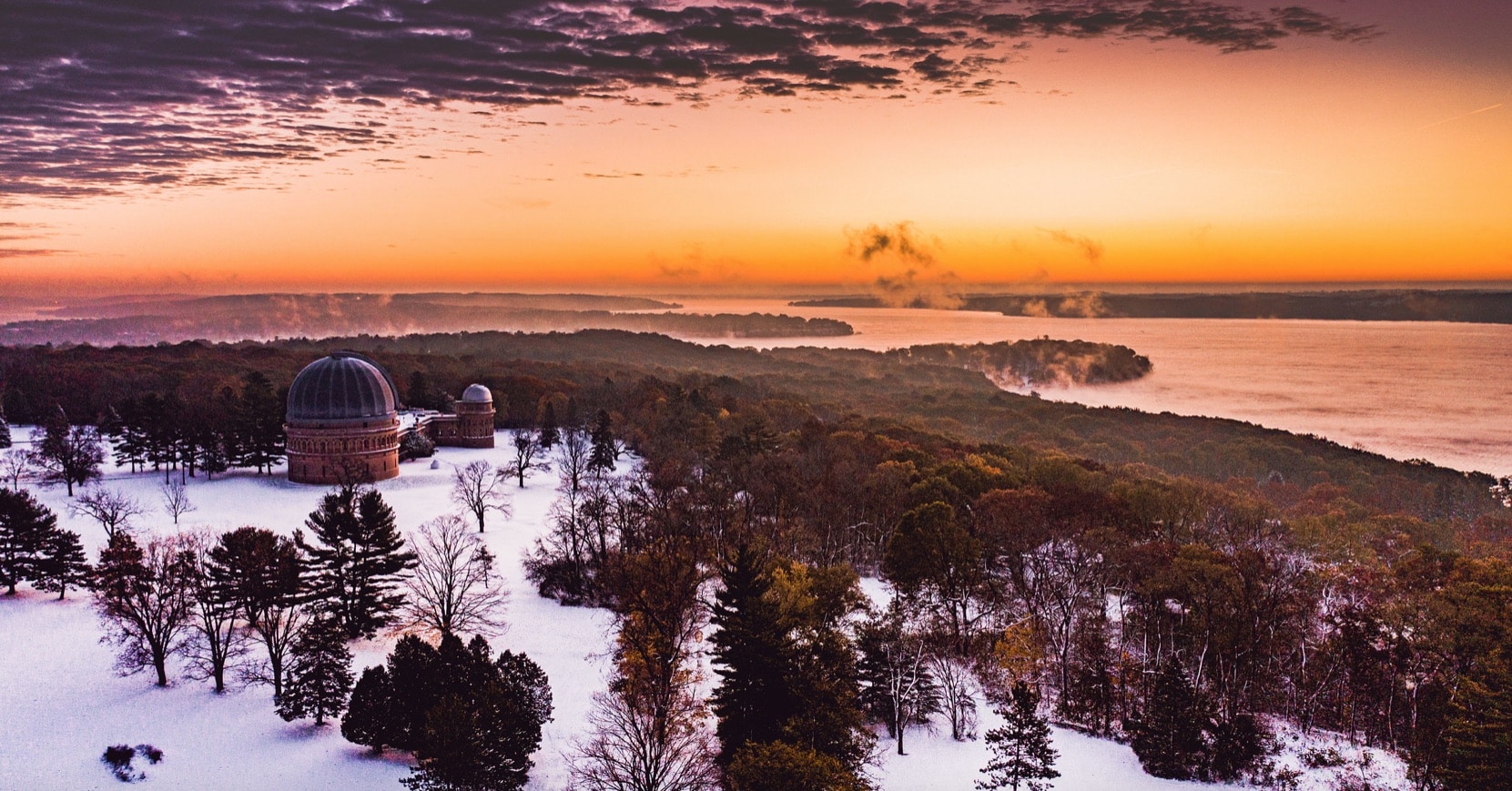At first I thought maybe it was just Monday. The world was resting, or asleep, or wishing to be unbothered by the thought of another week. Maybe it was less than wishing to be unbothered, maybe it was just the state of being uninspired. That’s an easy state in which to reside, especially when you’re on the heels of one holiday while staring down another. Monday, I’ll give you. But today is Tuesday and it feels the same. Uninspired.
Maybe I’m the only one who feels this way. Maybe everyone else is so inspired that they’re doing other things this week. Maybe they’re traveling. Maybe they’re resting. I know nothing of rest. I can be still, that’s something I’ve done before. I can be motionless for actual minutes at a time, but that has nothing to do with rest. I hope everyone is resting this week, because I’m here at this office and I cannot rest. I have things on my mind. I tragically always have things on my mind.
Lately I’ve been thinking about the University of Chicago and their Yerkes properties and the story behind it all. In the early part of 2018 the University announced that they’d be ceasing operations at their Yerkes Observatory and wished to sell the property. This news hit me hard. I remember the last time this sale was attempted, and I can still recall sitting in my old Williams Bay office with the representative for that New York developer. He shared with me his vision, and a pamphlet (I still have it on my shelf), on what Yerkes could become. It was a large scale development with lakefront spa, houses, duplexes and condominiums. Inexplicably, there was a moat of sorts that wound through the property. I couldn’t get over the moat.
That development attempt died through a combination of a softening market and stiff resistance from the Village of Williams Bay, and I believe everyone, excepting our developer friend, was happy to see that development killed off. The University didn’t continue the sales process, and instead kept the property and left it to operate much as it had before. My son joined a local group that operated out of the Observatory, participating as a McQuown Scholar. He only did it because we had visions of elite college grandeur, and we thought that might look nice on an application. Years passed and the Observatory persisted as an iconic, but scientifically obsolete, blip on our otherwise deciduous skyline.
After learning of the 2018 announcement, I contacted the University to discuss a potential plan for the future of Yerkes. The ancillary tax keys, those properties that were used for staff housing, would be sold off individually, and quietly. The larger chunks of non-lakefront dirt would be sold in a similar manner, as zoned, as is. The 500+ feet of wooded lakefront would be sensitively divided into three large lakefront lots and sold to end users, thus returning the valuable portion of this property to the tax rolls. By monitizing the property in this manner, the University could save the one thing that mattered to the Village: those grounds and that Observatory. With the non-core property sold off, the University could donate the Observatory to a new group dedicated to preserving and operating this historically significant structure. In my pitch, I even stated that the University would be the “hero”, or the “savior”, which one I cannot recall, but the message and outcome would be obvious. The University of Chicago would achieve their desired sales price and preserve the Observatory.
From my perspective, the plan was perfect. I’d play a roll in saving the Observatory, block the greater property from large-scale development (which I hate), and amass some sales volume along the way. My altruism only travels so far. I was wandering around the Louvre in May of 2018 when the University called to tell me they were initially on board with this concept. What transpired next isn’t worth discussing in too much detail. We sold off the ancillary properties, as intended. Then we spent eighteen months or more trying to divide the lakefront into three large parcels. The Village fought us at every turn. We ultimately abandoned that plan and sold the lakefront property this month to a new buyer who will largely preserve it. Along the way YFF stepped in to take over the operations and restoration of the Observatory. The plan is now complete, even if the route had more dead ends and left turns than I envisioned.
But back to the University of Chicago being the hero of this story. From my first involvement with the University in the early spring of 2018 until this day, I have found their actions to be incredibly thoughtful and considerate. They understood what they had here. They understood what the Observatory meant to this area. They handled this entire process in a manner that proved their understanding. They could have put this entire property up for sale to the highest bidder, Williams Bay be damned. But they didn’t. They carefully maneuvered this complicated process, even while being lambasted by unintelligent locals who repeatedly inferred that they had anything but noble intentions.
The University of Chicago built Yerkes Observatory in Williams Bay. They operated it for more than 120 years, which is an incredible feat that seems to be casually overlooked. The only reason this incredible structure has become an unmistakable landmark in Williams Bay is because of the University of Chicago. And now, the only reason Yerkes Observatory will remain for future generations is because of the University of Chicago. I’m grateful that they allowed me to assist in their property sales, and I’d be lying if I said I wasn’t proud to be chosen by them. More importantly, I hope I speak for the entire community when I say Thank You to the University of Chicago.
Yerkes Photograph Courtesy Jake Schnake, Blue Chair Studios.

